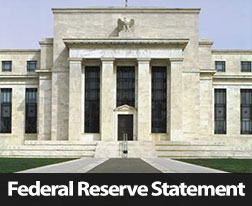
What Will It Cost?
If you’re going into a home expecting a few renovations costs, a minor detail here or there may not add up to much. However, if you’re not interested in spending the big bucks on making changes, you’ll want to estimate an approximate amount of how much the renovations you don’t want to live without will amount to. By including all the necessary labor and materials, you’ll be able to determine if the price-point of your offer will be worth it. Keep in mind that if there are any serious issues with the house, it may not be worth your while to consider the purchase at all.
Will Renovations Increase The Value?
In the event that you’re buying a home for its investment value, it’s going to be particularly important to consider if the renovations required will actually increase its market value. While adding another bedroom or upgrading a bathroom may not add significantly to a home’s overall price, certain more inexpensive improvements like painting, refinishing and new siding can actually add a lot to the look (and worth) of your home.
How Much Are You Willing To Take On?
It’s easy to think that you’re prepared to do the dirty work when faced with a fixer-upper, but getting down to brass tacks may not be so simple when the time comes. Before taking on a home that needs a lot of renovation, consider how much you’re willing to do so that you can determine if fixing it up will even be an economic boon after all the labor that may go into it. If you’re not a DIY kind of person, you may want to avoid a house that has a long list of repairs.
A fixer-upper can be tempting for those who want to invest or save on a home purchase, but you’ll want to carefully consider if it will be a good choice when it comes to selling time. If you’re currently perusing the market for a home, you may want to contact one of our real estate professionals for more information.
 Housing Starts Up in February
Housing Starts Up in February If you’re worried about your bad credit, you’ll want to do everything in your power to improve your rating as quickly as possible – especially if you have a major purchase coming up. Improving your credit rating can give you access to better interest rates on mortgages or even help you to get that job you’re after.
If you’re worried about your bad credit, you’ll want to do everything in your power to improve your rating as quickly as possible – especially if you have a major purchase coming up. Improving your credit rating can give you access to better interest rates on mortgages or even help you to get that job you’re after. According to a press release by the Federal Reserve, the Federal Open Market Committee (FOMC), the current target federal funds rate will hold steady at 0.25 to 0.50 percent. Committee members cited positive developments in the U.S economy including jobs growth, stronger labor markets and gradually increasing inflation. In addition, stronger housing sector and household spending were also noted as positive signs for the economy. Committee members cited risks associated with global economic and financial developments as a concern.
According to a press release by the Federal Reserve, the Federal Open Market Committee (FOMC), the current target federal funds rate will hold steady at 0.25 to 0.50 percent. Committee members cited positive developments in the U.S economy including jobs growth, stronger labor markets and gradually increasing inflation. In addition, stronger housing sector and household spending were also noted as positive signs for the economy. Committee members cited risks associated with global economic and financial developments as a concern. When you’re just moving into a neighborhood, it can be hard to know exactly what you’re getting into. Certainly, you can see the sights for yourself and read about your new community online, but there are still things that may not be readily available. If you’re looking for the cold, hard facts on the safety of your neighborhood, look no further than the following websites for the things you’ll want to know.
When you’re just moving into a neighborhood, it can be hard to know exactly what you’re getting into. Certainly, you can see the sights for yourself and read about your new community online, but there are still things that may not be readily available. If you’re looking for the cold, hard facts on the safety of your neighborhood, look no further than the following websites for the things you’ll want to know. From real estate agents to home buyers, there are so many tips out there on how to sell your home that it can be overwhelming to determine which tricks will boost your success rate and make the sale. If you’re looking for a few sure-fire hacks for getting your home off the market quickly, the following may do a lot of the hard work for you so that selling won’t remain a worry for long.
From real estate agents to home buyers, there are so many tips out there on how to sell your home that it can be overwhelming to determine which tricks will boost your success rate and make the sale. If you’re looking for a few sure-fire hacks for getting your home off the market quickly, the following may do a lot of the hard work for you so that selling won’t remain a worry for long.